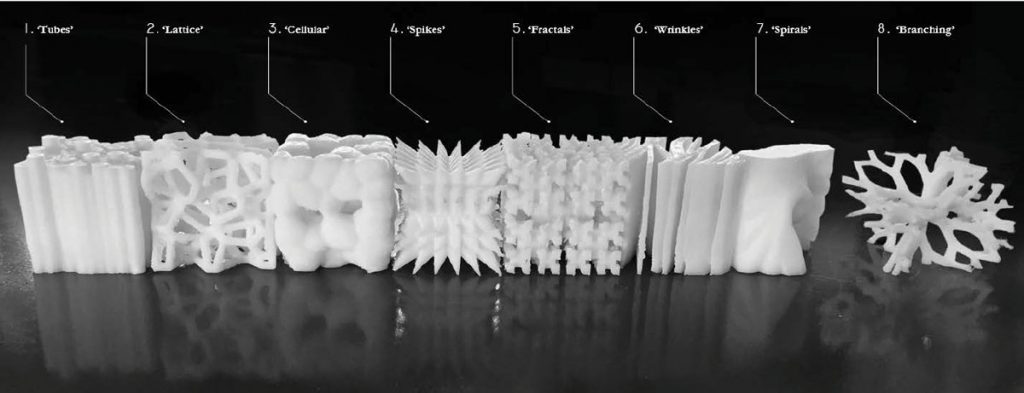The materials by design approach that emerged with the development of high-performance material since the mid-20th century started to shake the fundamental approach in developing new material systems. The traditional linear notion of structure, properties, and performance in materials was challenged and had to be replaced by a systematic approach, utilizing feedback loops and iterations. Along with the materials by design approach, material scientist started to see the organic matter in a new light at the turn of the 21st century, realizing that nature’s version of high-performance materials are far more advanced than what the scientists have been creating. Hence, the novel solutions and strategies in nature’s tectonics reemerged as important sources of inspiration for developing material systems and continue to influence the field of cellular solids, functionally graded materials, and adaptive materials.
Within this milieu, this course explores digital design and fabrication of material systems that are informed by the novel material tectonics found in nature. Among the various strategies and tectonics which nature repeatedly implements; hierarchical tectonics, soft tectonics, and gradient tectonics will be the center of focus. These explorations will be applied to developing modular building blocks that can be assembled into various building elements (e.g. column, wall, floor, roof, etc.) The key goal is to utilize the bio-tectonics to add functions or properties (i.e. functionally augment) to the building blocks and its assembly, beyond that of a typical masonry construction system. Some examples of functional augmentation include heat management, permeability control, and structural augmentation.
Through the course, the students will not only be able to develop skills and knowledge of the digital design and fabrication process but also learn how to apply advanced geometry and tectonics in developing novel material systems. A number of emerging digital techniques and processes including generative design, CAD/ CAM, geometry optimization, and design scripting will be introduced as hands-on workshops, and the students will utilize them to develop their design research project.
Biotectonic Building Blocks
Information
- Syracuse University School of Architecture
- ARC500 Professional Elective Course





